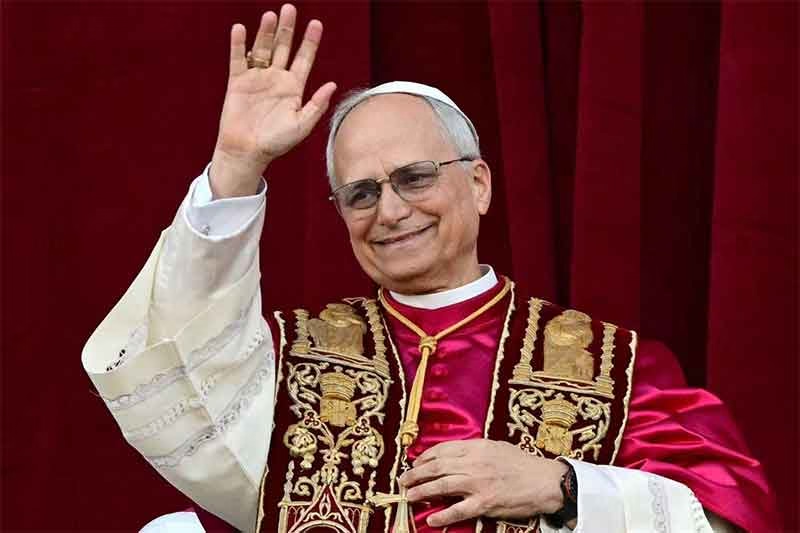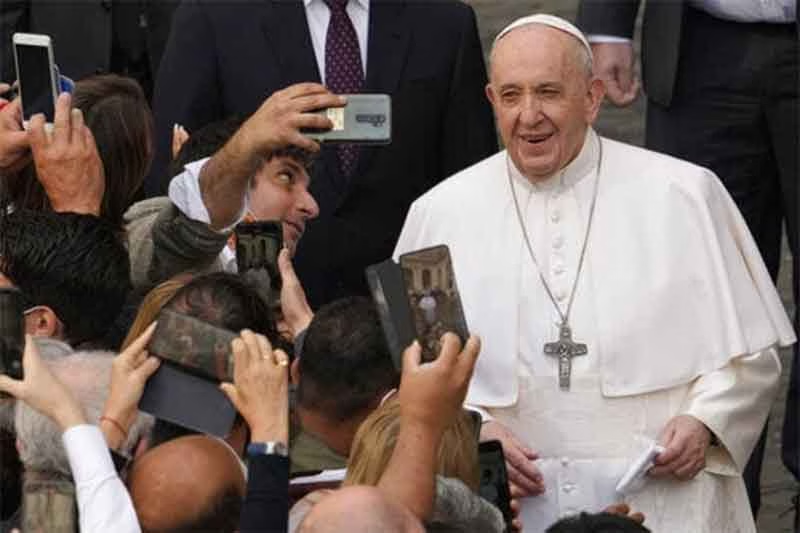Pope Francis’death on Easter Monday, April 21, 2025, at the age of 88 at his residence in the Vatican’s Casa Santa Marta has shaken the world very deeply. Leaders both political and religious, leaders both social and communitarian, leaders both youth and women have been paying tribute to this great historical person. He leaves behind a huge legacy as not only a catholic leader but as a world leader. His passing away at this time is seen as an irreparable loss for the church and the humanity.
In his indomitable style, he articulated his vision of the church as follows: “I prefer a church which is bruised, hurting and dirty because it has been out on the streets, rather than a church which is unhealthy from being confined and from clinging to its own security.” This he wrote in his encyclical or letter Evangelii Gaudium (‘Joy of the Gospel’). He went on to add, “I do not want a Church concerned with being at the centre and which then ends by being caught up in a web of obsessions and procedures. If something should rightly disturb us and trouble our consciences, it is the fact that so many of our brothers and sisters are living without the strength, light and consolation born of friendship with Jesus Christ, without a community of faith to support them, without meaning and a goal in life”. These sentiments express what type of church he dreamt of and what church he wanted to build.
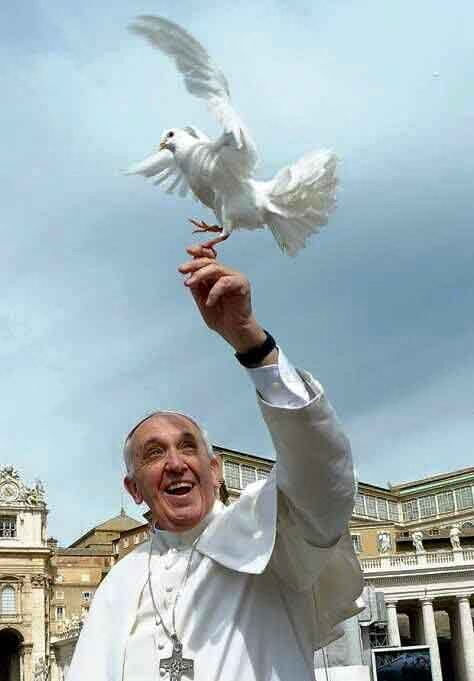
It is pertinent to straighten some of the exclusive claims on Pope Francis by different people. That is to state that what Pope Francis came to be finally as the Pontiff of the Catholic Church evolved from many sources and inspirations. Pope Francis was born in Argentina in Latin America and was christened as George on 17th December 1936. He was the son of an Italian immigrant parents. His father Mario was an accountant employed by the railways and his mother Regina was a home maker who dedicated her life to raise their five children in to good Christians and good human beings. After his education, he joined the Jesuit order and became a Jesuit priest to serve his people in Argentina. In 1992, he was appointed as the Bishop of Buenos Aires in Argentina. It is reported by those who knew him closely that as the Bishop when he began to visit the slums and shanty towns he was transformed to be a pastor and a shepherd than a clerical priest.
He was elected Supreme Pontiff or Holy Father or Pope on 13th March 2013. He chose the name Francis, in honour of St. Francis of Assisi, who lived a life of simplicity, humility, and poverty so as to serve the poor. It is this beginning as the pope with clear indication of leadership as the Holy Father of the Catholic Church which marked the beginning of his papacy which was very different. In his first address to those who were gathered in Peter’s Square, Rome and through them to all, he said among the other things the following: “And now I would like to give the blessing, but first I want to ask you a favour. Before the bishop blesses the people, I ask that you would pray to the Lord to bless me — the prayer of the people for their Bishop… I will now give my blessing to you and to the whole world, to all men and women of good will.”
There are many aspects of his life which were the sources of inspiration for him which coloured his personality and leadership of the Church. First of all, he came from a migrant family, a family that migrated from Italy to Argentina as migrant labour family. His birth and early life was in Latin America which was witnessing both struggles and joys of liberation, slums and posh areas, poverty and religiosity, conservative religious practices and popular religiosity, etc. His choice of the name of Francis was something that indicated his resolve to live a life of simplicity, poverty and humility. Possibly, Francis also included Francis Xavier who was one of the greatest missionaries of the Church. The Jesuit formation surely played a role in shaping his spirituality of discernment as well as seeking for alternatives in every situation. All these factors coloured his personal, spiritual, religious, social and global life as the Pontiff.
A Pope of the Poor and the Periphery
Pope Francis would be remembered for ever as the Pope of the Poor and the Periphery. A church which is controlled by a compound culture, he let the windows and doors open for change. He was not only content with people coming to the church but the church leaders going out to the streets. In his letter he articulated this very well. ‘More than by fear of going astray, my hope is that we will be moved by the fear of remaining shut up within structures which give us a false sense of security, within rules which make us harsh judges, within habits which make us feel safe, while at our door people are starving and Jesus does not tire of saying to us: “Give them something to eat” (Gospel of Mark 6:37). (Evangelii Gaudium, #49).
From his intent and action, it can be gathered that being ‘on the streets’ can refer to how ‘in touch’ we are with the lives of those around us and beyond our immediate circle; i.e., our capacity to make contact and listen to those of another culture, religion, political point of view, or how open we are to being exposed to new ideas and ways of thinking, rather than choosing to remain insulated. Hence, he was concerned about a church which is isolated and insulated.
In the encyclical Laudato si, the Pope criticized consumerism and irresponsible economic development. He lamented environmental degradation leading to global warming, and called all people of the world to take “swift and unified global action. He expanded the force of the option for the poor by connecting it to the principle of the common good, a principle that now includes care for the earth. In this connection, he presents the preferential option for the poor as an “ethical imperative” to promote participation in the common good. Equating both the earth and the poor who are marginalised and oppressed, he points to the fact that both cry for emancipation.
Pope Francis called on the media to represent the violations of rights of the poor and the vulnerable. He wants the Church to be poor and for the poor. Thus, asking the Church to represent the poor everywhere where they cannot represent themselves. He also invited all the Christians to reflect and act on, ‘Christian hope embraces the poor’. He stated that “Christian hope embraces the certainty that our prayer reaches God’s presence; not just any prayer but rather the prayer of the poor!” So, as the year of anticipation for the Jubilee drew to a close (The World Day of the Poor, 2022), the Holy Father urged the faithful to reflect on this word and “read” it on the faces and in the stories of the poor whom we encounter daily, “so that prayer can become a path of communion with them and a sharing in their suffering”.

But he did not remain only with his words but practiced what he preached. He reached out personally to the poor. For example, he turned a Vatican plaza into a refuge for the homeless, whom he called “nobles of the street.” He washed the feet of migrants and prisoners during the traditional foot-washing ceremony on the Thursday before Easter. He followed his Lord and Master who beckoned his disciples to ‘do likewise’. Possibly, this gesture of him was one of the behaviours of him which was not liked by some clerics.
A Pope of the Common Home: From the time of assuming theofficeof papacy, Pope Francis has been continuing with his perennial theme on the direction of Church reform. Going further in this encyclical ‘Laudato si’ he links two interrelated themes closer to his heart, a poor Church for the poor and cry of the earth is cry of the poor. In the last two encyclicals that the Pope carefully carved out, he had twin objectives. In the Apostolic exhortation 2013, “Evangelii Gaudium, On the Proclamation of the Gospel in Today’s World” he communicated with all the members of the Church with the aim of encouraging ongoing missionary renewal. In this Encyclical “Laudato si, Our Common Home”, he tries to enter into dialogue with the global family about our common home.
In this encyclical, he focuses on the destruction of God’s creation and calls for its restoration. He goes further to term this degradation of environment for unquenching consumption and profit as social, moral, ethical, spiritual and ecological sin. This sin is against ourselves since it dehumanizes us, against God’s creation and against God Himself or Herself. To be silent on the face of this is not Christian and human. Hence, calls for immediate and urgent action. Celebrating the Earth Day on April 22nd and Environment Day on 5th June are only a symbolic gesture. We need to put in practice just relationship with our fellow beings and with creation.
A Pope of Inclusivity: It is an undeniable fact that throughout his papacy he was dedicatedto make a Church for all, not just some. Many people world over recognise this fact that when Pope Francis spoke out against the act of criminalizing LGBTQ people and when he famously spoke ‘who am I to judge,’ he created an example of unity that faith and civil leaders should follow. The same can be said of those who kept out of the church due to guilt feelings. He wanted the church doors to be open to all without any restrictions. He also directed the parents not to condemn their children if they are gay or lesbian.
The pope said in clear terms that transgender people could be baptised within the Catholic Church and could serve as godparents. To concretise these thoughts, he also opened the Vatican to transgender sex workers as part of his larger outreach toward the LGBTQ+ community. He was not bound by barriers and boundaries of any kind. He wanted an open and inclusive church. Will the Indian Church rise up to this occasion, remains a million dollar question.
A Pope for Inter-Religious and Inter-Human:
The first visit of a Pope to the Arabian Peninsula and to Iraq; his dear friendship with Rabbi Abraham Skorka in Argentina and the Grand Imam of Al-Azhar, Ahmed Al-Tayyeb; frequent visits to synagogues; condemnations of the Shoah and anti-Semitism; joint declarations with interfaith leaders committing to peace, harmony, and opposing religious extremism are just few instances of his contribution to interreligious friendship and dialogue. At the risk of repetition, it needs to be stated that in his landmark encyclical ‘Fratelli tutti,” Pope Francis emphasized the idea of human fraternity, drawing on the legacy of St. Francis of Assisi to inspire political action rooted in solidarity and highlighting the critical role of religions in building peace.
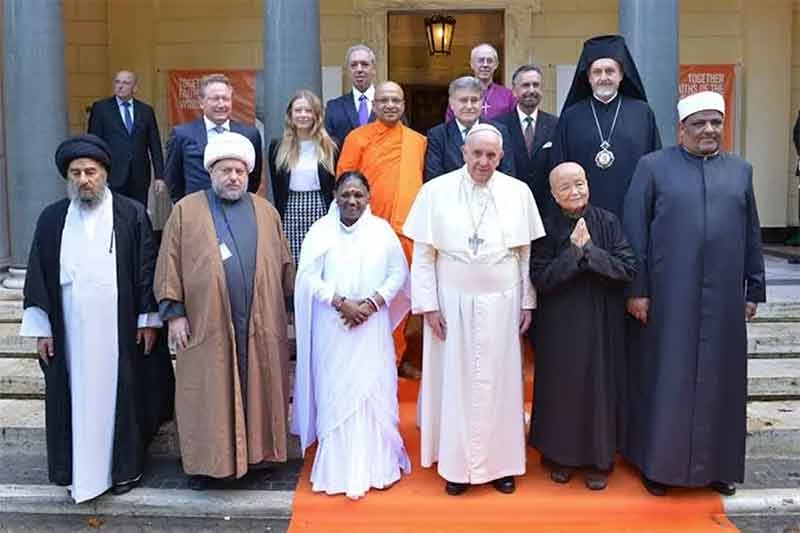
Pope Francis agonised with the shift from constructive dialogue and the pursuit of the common good to a landscape dominated by individualism, profit-seeking, a “throwaway culture,” and a divisive rhetoric. He highlighted humanity’s interconnectedness and the need for a collective response to today’s daunting challenges, including rising poverty, conflicts, and the environmental crisis.
Pope Francis and the leaders of world’s religions came together in one voice to declare that modern slavery is a crime against humanity. They called on all people, irrespective of gender, faith and culture, to work together to eradicate human trafficking and all other forms of slavery from the face of the earth.
Subscribe to Our Newsletter
Get the latest CounterCurrents updates delivered straight to your inbox.
A Pope for World Peace and Harmony: Pope Francis was an apostle of peace who responded not with force, but with compassion, when imperial powers like Israel, America, or Russia chose the path of violence. He urged the world to look into the face of humanity. The suffering humanity due to violence and war, due to greed and creed, individualism and consumerism always was at the fore of his life and mission. Imam Yahyâ Pallavicini, vice president of the Italian Islamic Religious Community, made a very positive, encouraging statement about Pope Francis’s approach to other religions. “I think he will take interreligious dialogue among people; he will make it closer to people, not confined to theological exchanges among scholars, or political, territorial and international conflicts.”
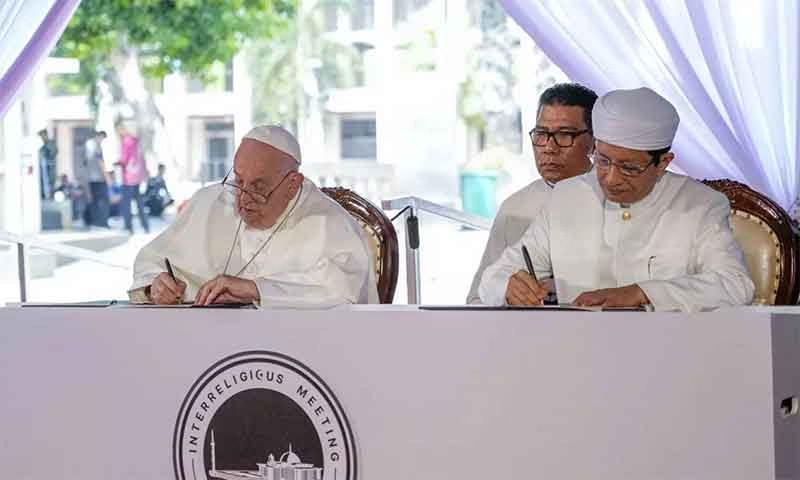
Being concerned of “the increasingly concrete threat of a world war,” Pope Francis called for “the diplomacy of hope” in his address to the ambassadors of the 184 countries that have diplomatic relations with the Holy See, when he greeted them for the New Year on January, 9th, 2025. He repeatedly called for an end to the war in Ukraine, and sent his emissaries to broker peace. Similarly, he made all efforts to stop war in Gaza. He had said repeatedly, “I express my closeness to the sufferings … of all the Israeli people and the Palestinian people, I appeal to the warring parties: call a ceasefire, release the hostages and come to the aid of a starving people that aspires to a future of peace.” This was his last message read out on Easter Sunday. He like the war affected people dreamt of long lasting peace for humanity.
Dr. Prakash Louis, Director, Xavier Institute of Social Research, Digha-Ashiana Road, Patna, Bihar

